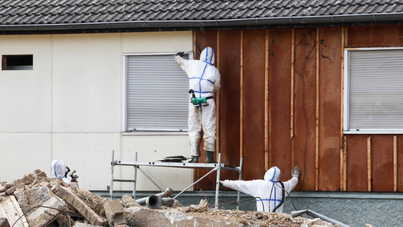Author
Fire Risk Assessments
A Fire Risk Assessment (FRA) is a review that is undertaken of a building to assess its fire risk and, where necessary, to give recommendations to make the building safer. The Regulatory Reform (Fire Safety) Order 2005 requires that all non-domestic premises (such as a workplace), including common or shared parts of blocks of flats or houses in multiple occupation have an FRA carried out.
The Regulatory Reform (Fire Safety) Order 2005 says that an FRA must be ‘reviewed regularly to keep it up to date’, particularly if there is reason to suspect that it is no longer valid or if there have been significant changes to the building such as an extension or conversion. It also requires that a ‘responsible person’ is allocated to deal with carrying out the risk assessment. The ‘responsible person’ is usually the freehold owner of the whole building, but it could also be the employer or occupier.
From a conveyancing perspective, this means that when acting on a purchase of a leasehold property or a freehold property where there are common areas (e.g. halls, stairwells, lift shafts, roof spaces), a copy of the Fire Risk Assessment should always be requested from the seller’s conveyancer. If they are not able to provide a copy, then the seller should obtain assurance from the freeholder or management company that one will be arranged and made available to the buyer as soon as possible. Usually, where there is a management company, a copy of the FRA will be included in the sales pack provided by them.
Asbestos Reports
Non-domestic premises and the common areas, as listed above, give rise to a ‘duty to manage’ asbestos under The Control of Asbestos Regulations 2012. The obligation to manage asbestos is imposed on the ‘duty holder’, being any person who has control of non-domestic premises, the means to access them, or who has an obligation in relation to the repair or maintenance of such premises.
The Control of Asbestos Regulations 2012 impose a statutory obligation on those who own, occupy, or have a repair obligation for non-domestic premises and domestic premises, where there are common areas (such as blocks of flats), to ensure that those premises have been properly surveyed for the presence of asbestos and that any necessary management plan has been prepared. This requirement applies only to the common areas within blocks of flats and not to the individual flats themselves.
With regards to residential property, it is not a legal requirement for a seller to provide a buyer with an asbestos report where the property does not have any common areas. Where the premises contain common areas, the buyer’s solicitor should request a copy of the asbestos report from the seller. It is important to note that properties built after 1999 should not carry any risk due to the ban of asbestos under the Asbestos (Prohibitions) (Amendment) Regulations 1999, and therefore an asbestos report should not be necessary.
If you are purchasing a residential property that was built prior to 2000, or a survey reveals that there is asbestos present at the property, the buyer should request an asbestos report to be carried out by the seller or arrange to carry one out themselves if the seller is not willing to do so. If asbestos is present, then it is likely that any lender would want sight of a report prior to releasing the mortgage advance. It is not illegal to sell a house in the UK with asbestos, but it is important that this is disclosed to the buyer at the outset.
Print article

